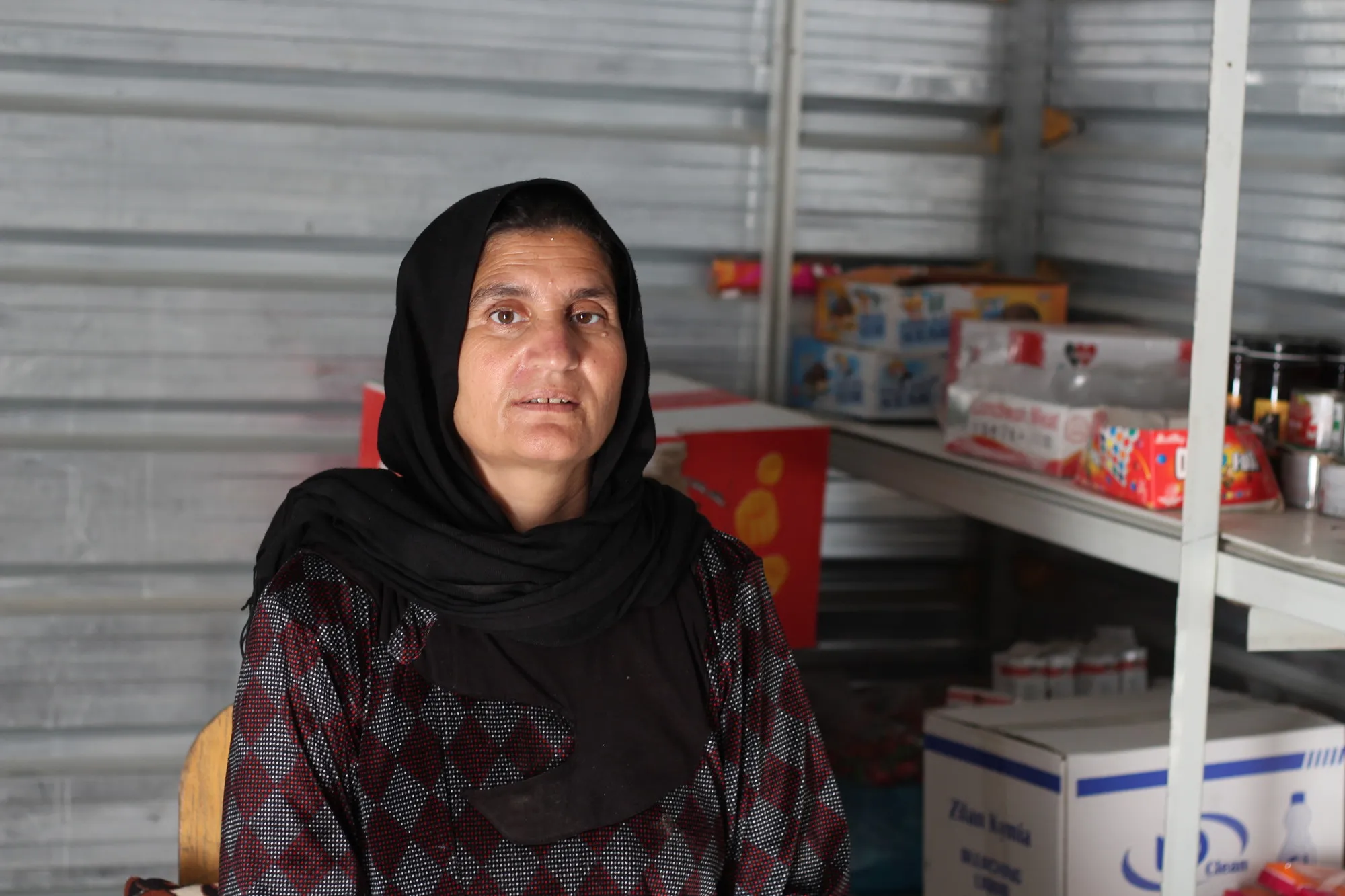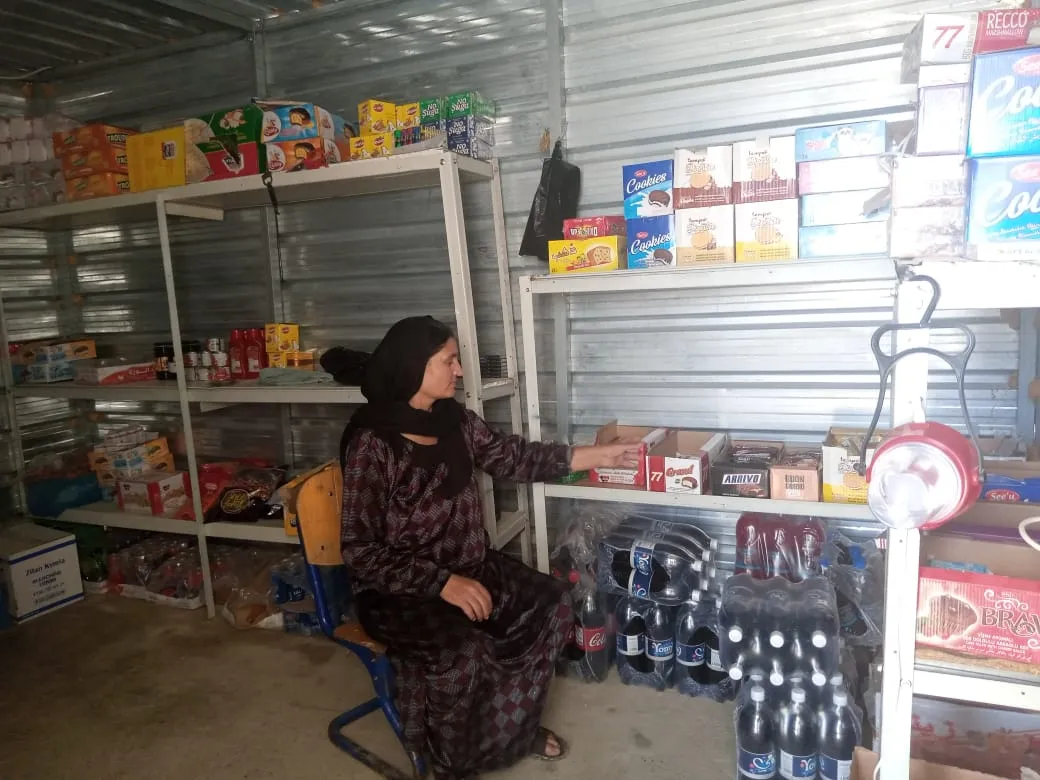Khonaf Saido Abdullah is 54-year-old Yazidi mother of seven from Sinjar, Iraq where she was living with her young children and disabled husband in a small rental property. They worked as farm laborers to get a small income, but she still did not have enough money to be able to send any of her children to school.
On August 3, 2014, ISIS attacked Khonaf’s village and she was forced to run away with her children and husband. “I saw a lot of people being killed on the streets and many left their parents and children because they couldn’t look after them anymore,” she says.
Khonaf and her family fled to the nearby Sinjar mountains where they struggled to find food and water. Despite having a large number of children and a disabled husband Khonaf refused to leave anyone behind, and single-handedly carried three of her children to safety. “Poverty taught me to be strong!” she says.
“I will die if I lose this daughter as I lost the first one.”
Khonaf and her family eventually sought shelter in Rwanga displacement camp in the northern Kurdish region of Iraq. But, despite being safe, life in the camp remained very hard for Khonaf and she depended on donations from her neighbors to survive.
While living in Rwanga Khonaf’s eldest daughter got married. But just one year after marriage, she tragically took her own life as a result of the relentless violence she suffered at her husband’s hands. This left Khonaf heartbroken and depressed. Withdrawn and unable to socialize with others, she even sought medical help.
Khonaf was one of the women chosen to be part of the women business incubator project run by CARE Iraq. Through this project Khonaf finally got the chance to receive counseling from a psychologist through CARE’s partners The Lotus Flower, as well as business advice and support to set up her own shop.
“A lot has been changed in my life and I feel better psychologically, and I feel very happy to see my kids can have food and clothes they need,” says Khonaf.
She adds, “I always wanted to have a job to get income for my family, so I no longer seek help from other people.”
She remembers the first customer to her shop who was a child coming to buy a cake. “It was a very happy moment and I felt very proud of myself .”
With the money Khonaf has been able to provide for her family, help her husband get the treatment he needs and send her children to school for the first time. It has also helped increase the respect she gets from her husband, and from her wider community.
“I feel stronger than before and realized that I can also be a lifesaver for my kids and there is no difference between men and women,” she says.


